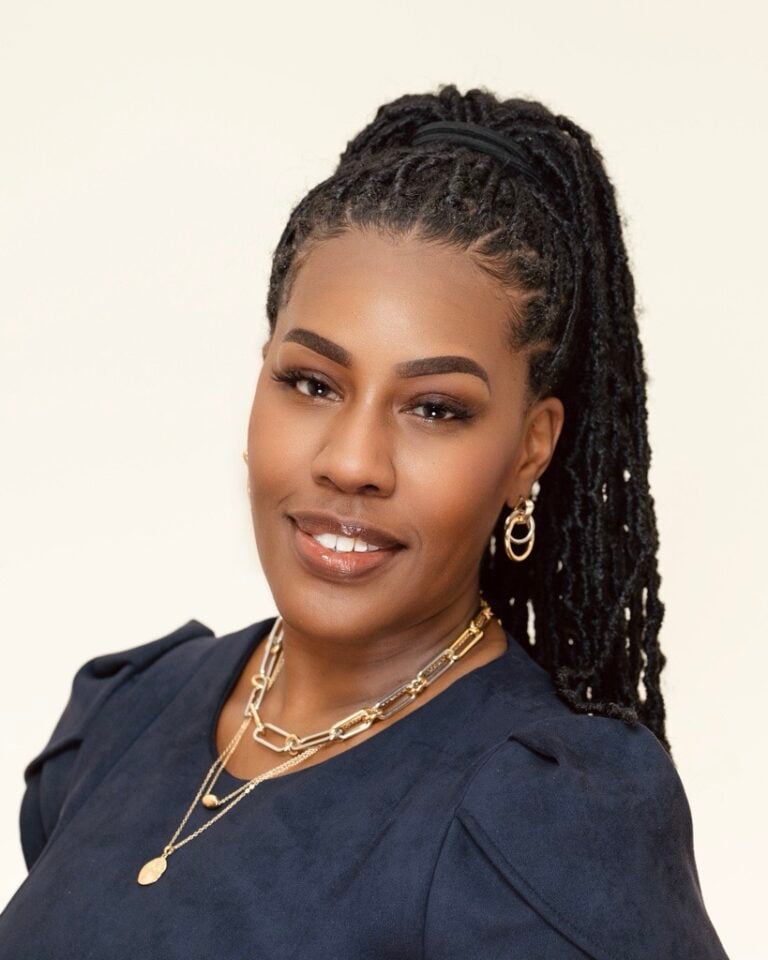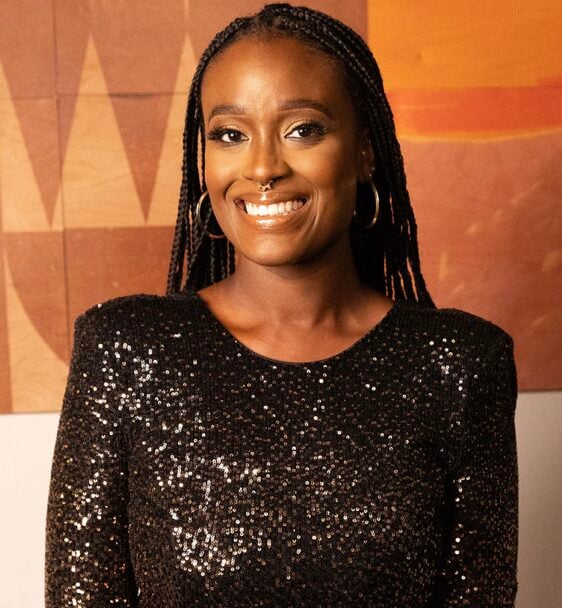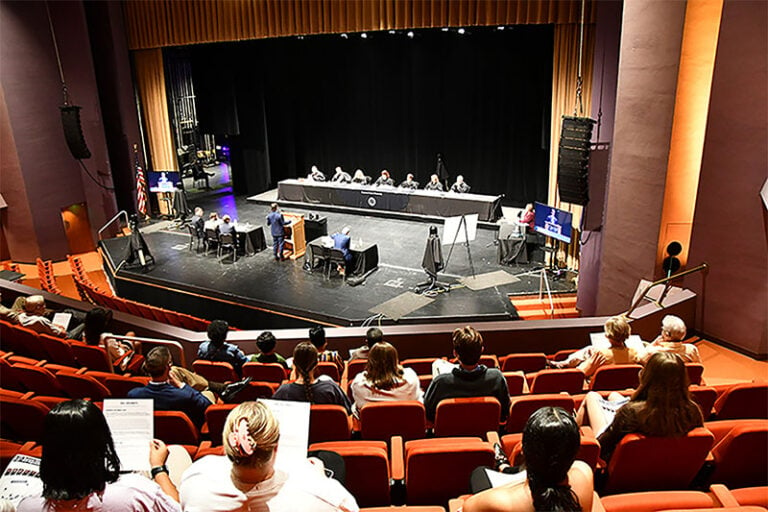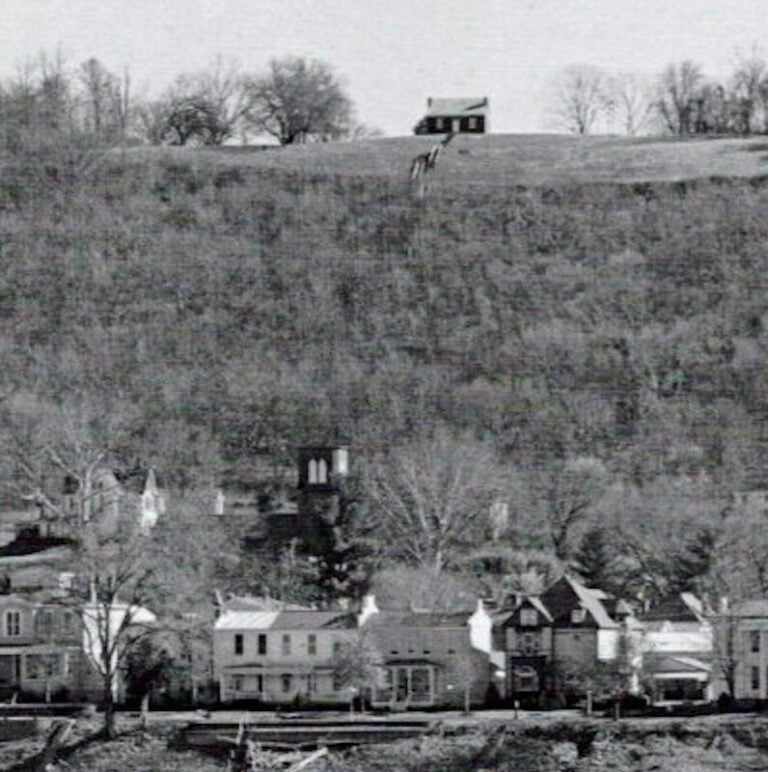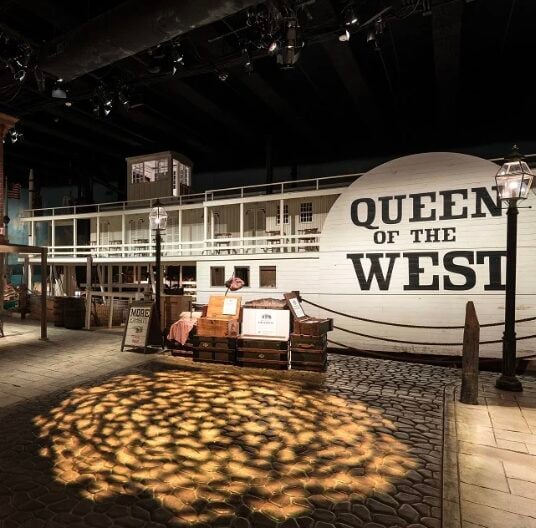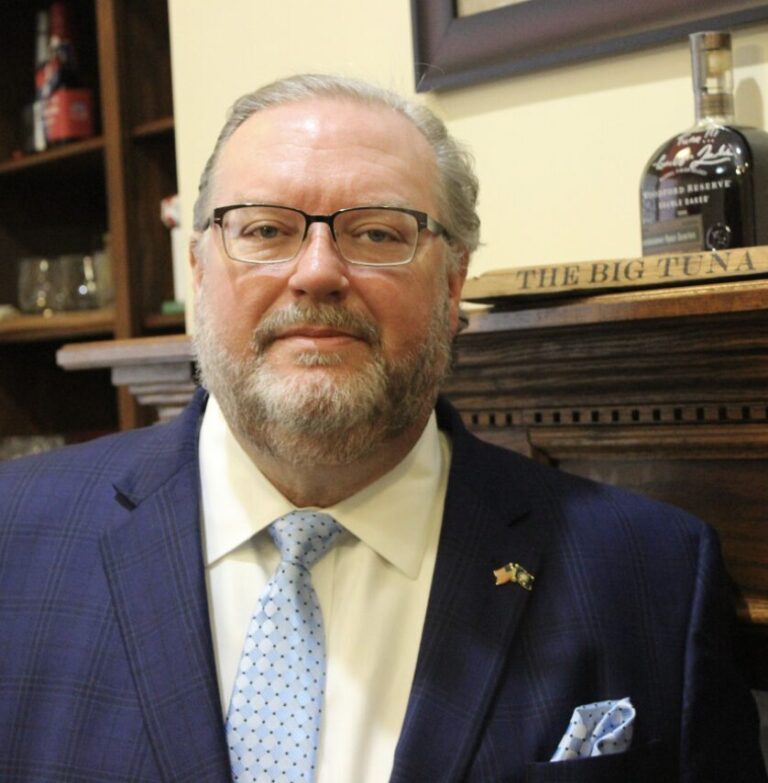The title of the first poem in Crystal Wilkinson’s book, Perfect Black, is “Terrain.” On the facing page is the illustration above, rendered in stark black and white by Ronald W. Davis, the poet’s longtime partner. The uneven landscape is dotted with fir trees, each bough a slash pointing to an empty sky. A sliver of moon has fallen to earth.
Like the poems in Perfect Black, the drawing can be viewed from various perspectives. It took me many times as I read and re-read this compelling collection to see the image as the profile of a reclining person. Forehead, nose, mouth, chin – all were right there in front of me — but I had not paid enough attention.

Perfect Black invites readers to pay attention, to read and re-read individual poems and revisit stunning images. Like one of those paper maps that guided our travels before GPS, once unfolded, it is hard to put the ideas back together into a neat little package.
Wilkinson, currently Kentucky’s Poet Laureate, welcomes readers to her world to learn about her own life and the lives of her forebears.
“People are always surprised that black people reside in the hills of Appalachia,” she writes. “Those not surprised that we were there are surprised that we stayed. My family lived in the hills of Kentucky for four generations.”
Unable to break the barriers of racism or nepotism in education or the workforce, they stayed and worked hard. “They continued the tradition of farming. Tobacco. Corn. A few head of cattle. A few dairy cows.”
Described as proud folks, they tended to the family, their animals, and their land. The meals they shared sound mouth-watering. Breakfasts were “scrambled fluffy yellow eggs.” Biscuits were made from scratch, the dough rolled out by the grandmother who “threw flour into the air like magic dust.”
Homemade preserves came from pears, peaches, or blackberries. Meals were served on “white plates with blue flowers around the edges and a blue landscape in the center.”
The longest poem in the book, Praise Song for the Kitchen Ghosts contains recipes that carry on fading traditions of Black farmers. They teach how to fix greens without fatback or whip up Wilkinson’s grandmother’s recipe for jam cake with caramel icing.
“Cinnamon + cloves = childhood,” the poet declares.
Not all memories are lyrical. Wilkinson remembers the pain of an absent mother struggling with mental illness, and working hard to fit in and stand out at the same time.
Most of the poems in Perfect Black arise from personal experiences, but one titled “August 9, 1974” ventures onto the national scene. “This is not a political poem,” the poet insists.

She remembers watching TV the day Richard Nixon resigned the presidency but was mostly aware that she was wearing lip gloss and hot pants that summer that she was away from her grandmother’s reach. Enthralled with her cousin’s friend, Mark, she was impressed by his afro, “as big as the globe/ back home on Ms. Rigney’s desk.”
That recollection leads to musings about how we got from there to here, again with the insistence, “This is not a political poem.”
but today i am thinking
about guns &
rape culture
Such connections about girlhood, racism, and political awakening, sparked with vivid imagery, are explored further in “Dear Johnny P.” The poem recounts a happenstance reunion between the poet and an old bully.
When they were in school together, he called her “aunt jemima” and, in her words:
grabbed at my breasts
asked me for some of that chocolate cow’s milk
hate in your face/disgust in your eyes
Looking her straight in the eye, he asks if she remembers him. As he extends his hand to shake hers, she muses that it is “the same hand you feared would turn you black.”
Reading this poem again the other day, I wished I could send a copy of “Perfect Black” to Kentucky Rep. Hal Rogers who, when asked by the chair of the Congressional Black Caucus to don his COVID mask before boarding the U.S. Capitol’s subway system last week, poked her in the back and said, “Get on the train.”
When she replied, “Don’t you ever touch me,” he turned and sneered, “Kiss my ass.”
“Perfect Black” is likely to be a book that lands, along with other writings by Crystal Wilkinson, on lists of award-winning books. All honors are well-deserved because Wilkinson helps readers gain insights into the past, while simultaneously making it clear that there is still a lot left to learn.
Perfect Black was published by University Press of Kentucky in August 2021. Crystal Wilkinson. currently teaches at the University of Kentucky where she is Associate Professor of English in the MFA in Creative Writing Program. Her novel, The Birds of Opulence, won the Ernest J. Gaines Award in 2016 and is on this year’s Elle magazine’s list for Black History Month.







